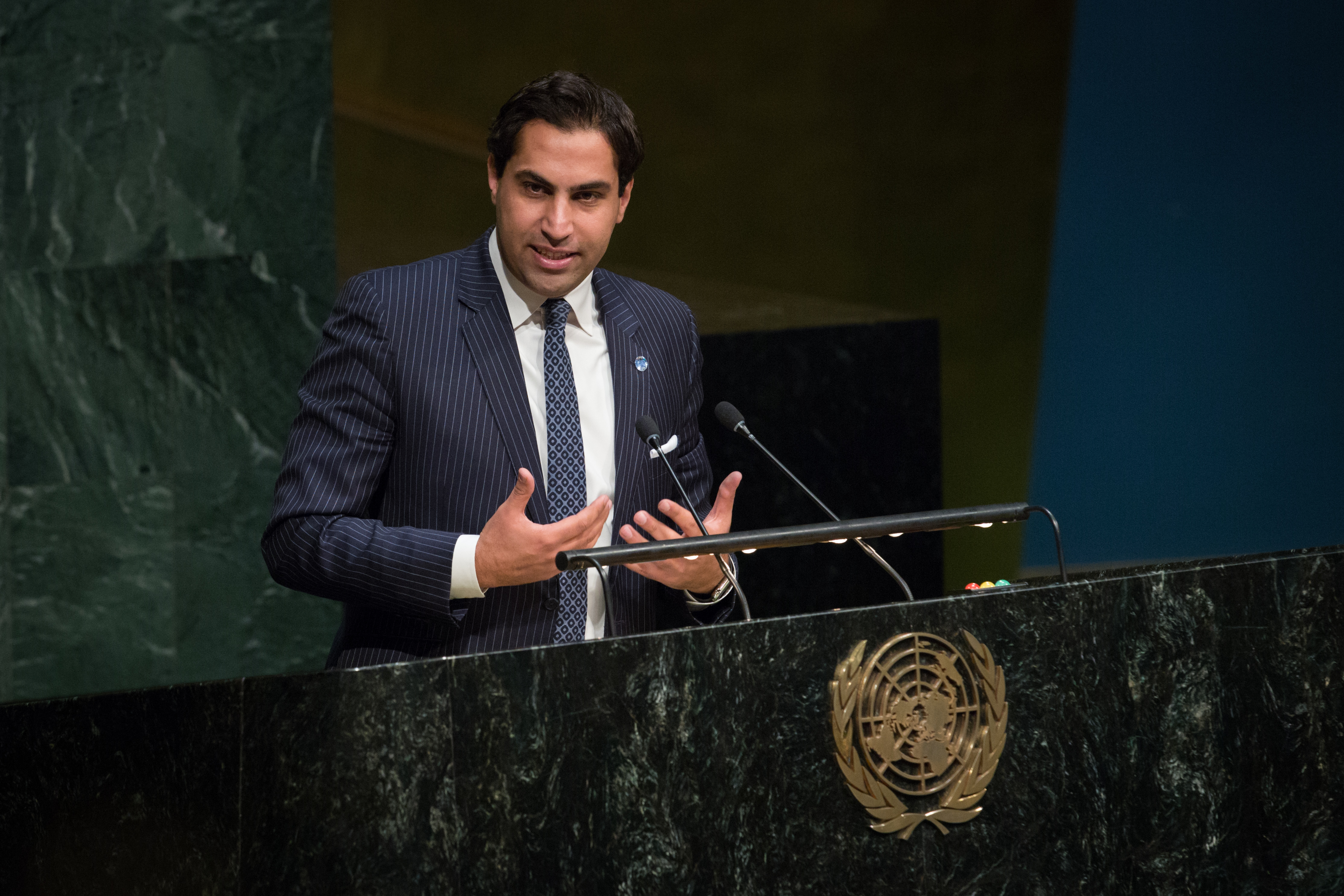THE SECRETARY-GENERAL’S ENVOY ON YOUTH
Mr. AHMAD ALHENDAWI
STATEMENT ON INTERNATIONAL WOMEN’S DAY 2016:
Young women today live in a world of immense challenges and serious risks, but also a world of incredible opportunity and expanding possibilities. As we commemorate International Women’s Day and think of how we can “Step It Up For Equality” to make Planet 50–50 by 2030, we need to seize our biggest opportunity to create a more just and equitable world, and that is the largest generation of young people the world has ever seen.
Significant strides have been made towards a Planet 50-50 in areas such as education reform, healthcare access, equitable employment, and peace and security, among others, yet so much work remains to be done. Let us make no mistake – to fully implement and achieve the 17 Sustainable Development Goals we must close all existing gender gaps.
To build a better world for all, we need to address gender inequality and discrimination from an early age onward. Based on their gender, girls and boys are confronted with marked differences in opportunities and constraints. These differences tend to become more pronounced as young people come of age. Adolescent girls and young women may find their freedom of movement, their educational, personal and economic development, and their security and life prospects severely limited.
The task now is clear. To build the world we want, a world free of poverty, a world with zero hunger, a world with peace and justice for all, we must empower young women and girls who are systematically left on the sidelines of today.
To build the world we want, we need to take action to expand access to education to millions of girls who today are not in school and deprived of an education. We must prevent early marriage and tackle the challenge and human rights violation of the one in every four young women in developing regions who are currently being married in childhood.
We are required to join in a collective effort and increase young women’s ‘transition’ rates from education to employment so that they are no longer consistently lower than young men’s, a situation that currently contributes to high levels of unemployment among young women in many regions. We also must be resolved to fight for fair and equitable employment to build a world where women no longer continue to earn less than men for doing the same jobs and a world where young women are no longer expected to do more of the unpaid domestic and care work than their male counterparts.
To build the world we want, we need to step up our efforts so that over 15 million girls no longer annually become mothers as teenagers and face the fears of complications during pregnancy and childbirth that are a leading cause of death.
We must counter violence against women which is widespread and systemic through all stages of the lifecycle, and stand up together against all forms of aggression, from female infanticide and genital mutilation to forced prostitution and trafficking, domestic violence, sexual harassment, and abuse and neglect of women in older ages.
Equally, to build the world we want, boys and young men need our support to face up to societal pressures to prove themselves in ways that may be harmful or risky to themselves or others, and instead encourage them to join the fight together with girls and young women for gender equality. As a proud He4She advocate, I cannot stress enough the critical importance of sensitizing boys and young men to respect girls and women as equals and share rights and responsibilities.
If we scale up our work with and for youth, the 1.8 billion young women and young men worldwide can become the world’s biggest opportunity to achieve gender equality. I am reminded of this wherever I travel and meet with young women and young men who are working, day in and day out, to make this world more peaceful, more just, and more equal.
From the young volunteers I met in Kampala, Uganda and Rubavu, Rwanda who are helping to educate their peers on the importance of young people’s access to sexual and reproductive health services to avoid unwanted pregnancies and HIV, to the young parliamentarians I met in Lahore, Pakistan joining the fight against gender-based discrimination and child marriage, these examples and many others inspire me every day and should inspire all of us in our work in making Planet 50-50 by 2030.
On this International Women’s Day, I call for stepping up our efforts for gender equality by engaging and empowering young people and leveraging their potential to drive social progress towards the world we want and deserve. The 1.8 billion young women and men are our biggest opportunity to achieve this vision.
Happy International Women’s Day! Let’s get to work.

